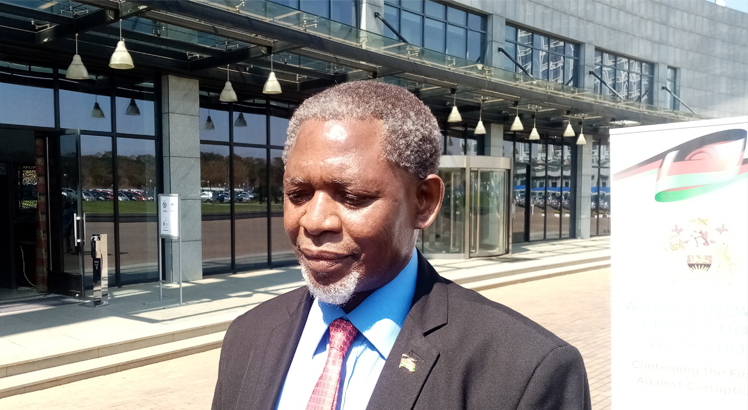Govt set to develop Whistleblower Protection Act
Government and the United Nations (UN) have moved to ensure that Malawi has a whistleblower protection legislation to enhance the fight against corruption and other crimes.
Speaking in Lilongwe yesterday when he opened a two-day Whistleblowers Protection workshop aimed at developing a legislation for protection of whistle-blowers, Minister of Justice Titus Mvalo said government is committed to have a Whistleblowers Act that it is fully operational to promote the fight against corruption.

A recent study by Afro-barometer on corruption found that 78 percent of Malawians fear retaliation if they report corruption to relevant authorities.
The minister said through corruption, resources that could have been used to deliver services end up in people’s pockets, thereby affecting national development.
Said Mvalo: “That corruption is evil is a self-evident truth. It ranks amongst the major obstacles diametrically opposing development, not only here in Malawi but the world over.
“It diverts resources into pockets of few selfish individuals and drastically reduces the capacity of public institutions to deliver basic social services. Corruption accounts for the yawning gap between the have and have-nots.”
He added that government is putting in place measures to ensure a sustained fight against corruption, saying government has increased funding for the Anti-Corruption Bureau (ACB) to effectively fight corruption.
“The recent amendment of Corrupt Practices Act also enables the ACB to prosecute cases without seeking consent from the Director of Public Prosecution and the formation of Financial Crimes Court is a big step towards ensuring fight against corruption. A Financial Crimes Court will help expedite corruption cases. We call on development partners to help strengthen the capacity of judges assigned to the Financial Crimes Court,” he said.
On his part, acting UN resident coordinator Rudolf Schwenk said with a stronger whistleblower protection, the country can end the culture of impunity on corruption and promote a culture of public accountability and integrity.
He said: “International instruments such as the United Nations Convention against Corruption acknowledge the importance of having stronger whistleblower protection laws as part of an effective anti-corruption framework.
“Information about acts of corruption comes to the fore when a whistleblowing system is designed to encourage more reports from citizens and officials in the public and private sectors. There will be more reports of corruption if whistle-blowers trust that they will be protected from retaliation, reprisal, and victimisation.”
ACB director general Martha Chizuma said a Whistleblowing Act would be a game-changer as it will enhance the fight against graft.
She said: “There are a number of countries in Africa who do not have this law and for those that have, they have just adopted them quite recently. This is because in our cultures, it is almost a taboo to report a crime. But what we have observed is that even those who have reported a crime and have been retaliated against, they have been reluctant to even report the retaliation suffered because they don’t have confidence in the available legal protections. All this drives people to desist from reporting crime.
“Despite all these fears associated with whistleblowing, it remains a game changer in the fight against corruption and other crimes. Once whistleblowing becomes properly regulated with sufficient safeguards included, we believe it can expedite the investigations and prosecutions of corruption and other crimes.”
Chizuma pointed out that the whistle-blowers protection legislation will not just cover people who report corruption but also other crimes. The legislation will be comprehensive to ensure that all whistle-blowers are protected.
Currently, there is no stand-alone legislation for protection of whistle-blowers. However in some Acts, including Corrupt Practices Act , there are provisions of whistle-blowers protection. However, the provisions are not strong enough to protect whistle-blowers as fines and sentences provided are lenient.
For instance, Section 51 A (5) of CPA provides that; any person who takes any kind of action to punish or victimize a whistle-blower shall be liable to a fine of K50 000 and two years imprisonment.





